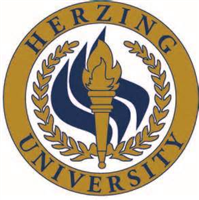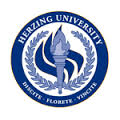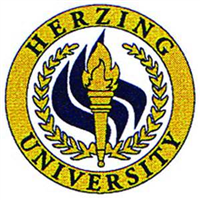What do they do?
Receive and process incoming orders for materials, merchandise, classified ads, or services such as repairs, installations, or rental of facilities. Generally receives orders via mail, phone, fax, or other electronic means. Duties include informing customers of receipt, prices, shipping dates, and delays; preparing contracts; and handling complaints.
Also known as:
Hub Associate, Materials Specialist, Order Analyst, Order Clerk, Order Entry Administrator (Order Entry Admin), Order Entry Representative (Order Entry Rep), Order Processing Clerk, Order Taker, Warehouse Clerk, Warehouse Person
-
-18.1%
Change
Ranks #51 in job growth rate380Job Openings
Ranks #13 in net job growth
-
Sinclair Community College
Dayton, OH
-
Rio Salado College
Tempe, AZ
-
Bob Jones University
Greenville, SC
-
CDE Career Institute
Tannersville, PA
-
Colegio Educativo Tecnologico Industrial Inc
Arecibo, PR
Looking for colleges that offer a specific major? Use the College Match Tool to find your best-matched schools and discover your estimated Net Price!
- Doctorate or Professional Degree (1%)
- Master's degree (3%)
- Bachelor's degree (20%)
- Associate's degree (10%)
- Some college, no degree (29%)
- High school diploma equivalent (31%)
- Less than high school diploma (7%)
People in this career often have these skills:
- Active Listening - Giving full attention to what other people are saying, taking time to understand the points being made, asking questions as appropriate, and not interrupting at inappropriate times.
- Speaking - Talking to others to convey information effectively.
- Reading Comprehension - Understanding written sentences and paragraphs in work-related documents.
- Service Orientation - Actively looking for ways to help people.
People in this career often know a lot about:
- Customer and Personal Service - Knowledge of principles and processes for providing customer and personal services. This includes customer needs assessment, meeting quality standards for services, and evaluation of customer satisfaction.
- Production and Processing - Knowledge of raw materials, production processes, quality control, costs, and other techniques for maximizing the effective manufacture and distribution of goods.
- Computers and Electronics - Knowledge of circuit boards, processors, chips, electronic equipment, and computer hardware and software, including applications and programming.
- Education and Training - Knowledge of principles and methods for curriculum and training design, teaching and instruction for individuals and groups, and the measurement of training effects.
- English Language - Knowledge of the structure and content of the English language including the meaning and spelling of words, rules of composition, and grammar.
- Administrative - Knowledge of administrative and office procedures and systems such as word processing, managing files and records, stenography and transcription, designing forms, and workplace terminology.
- Mathematics - Knowledge of arithmetic, algebra, geometry, calculus, statistics, and their applications.
- Sales and Marketing - Knowledge of principles and methods for showing, promoting, and selling products or services. This includes marketing strategy and tactics, product demonstration, sales techniques, and sales control systems.
- Transportation - Knowledge of principles and methods for moving people or goods by air, rail, sea, or road, including the relative costs and benefits.
- Public Safety and Security - Knowledge of relevant equipment, policies, procedures, and strategies to promote effective local, state, or national security operations for the protection of people, data, property, and institutions.
People in this career often have talent in:
- Oral Comprehension - The ability to listen to and understand information and ideas presented through spoken words and sentences.
- Oral Expression - The ability to communicate information and ideas in speaking so others will understand.
- Near Vision - The ability to see details at close range (within a few feet of the observer).
- Speech Recognition - The ability to identify and understand the speech of another person.
- Speech Clarity - The ability to speak clearly so others can understand you.
- Written Comprehension - The ability to read and understand information and ideas presented in writing.
- Problem Sensitivity - The ability to tell when something is wrong or is likely to go wrong. It does not involve solving the problem, only recognizing that there is a problem.
- Written Expression - The ability to communicate information and ideas in writing so others will understand.
People in this career often do these activities:
- Verify accuracy of financial or transactional data.
- Obtain personal or financial information about customers or applicants.
- Prepare documentation for contracts, transactions, or regulatory compliance.
- Discuss goods or services information with customers or patrons.
- Inspect items for damage or defects.
- Respond to customer problems or complaints.
- Monitor inventories of products or materials.
- Inspect shipments to ensure correct order fulfillment.
- Confer with coworkers to coordinate work activities.
- Manage clerical or administrative activities.
- Maintain inventory records.
- Send information, materials or documentation.
- Collect deposits, payments or fees.
- Calculate financial data.
- Compile data or documentation.
- Recommend packing or shipping methods.
- Calculate shipping costs.
- Calculate costs of goods or services.
- Provide notifications to customers or patrons.
- File documents or records.
- Promote products, services, or programs.
- Provide information to coworkers.
This page includes data from:

 Occupation statistics: USDOL U.S. Bureau of Labor Statistics Occupational Employment Statistics
Occupation statistics: USDOL U.S. Bureau of Labor Statistics Occupational Employment Statistics
 Videos: CareerOneStop, USDOL/ETA and the Minnesota Department of Employment & Economic Development
Videos: CareerOneStop, USDOL/ETA and the Minnesota Department of Employment & Economic Development









